Sala10: Teresa Margolles
Póker de damas
[Ladies’ Poker]
Póker de damas [Ladies’ Poker] is an attempt to intervene in how Karla, a trans sex worker who was brutally killed in Ciudad Juárez in 2015, is remembered. This action is an elegy that addresses the condition of Latin American trans women living in Mexico and in Switzerland by capturing part of a dialogue held on May 11, 2016 in Room 10 of the Hotel Bombín in downtown Ciudad Juárez.
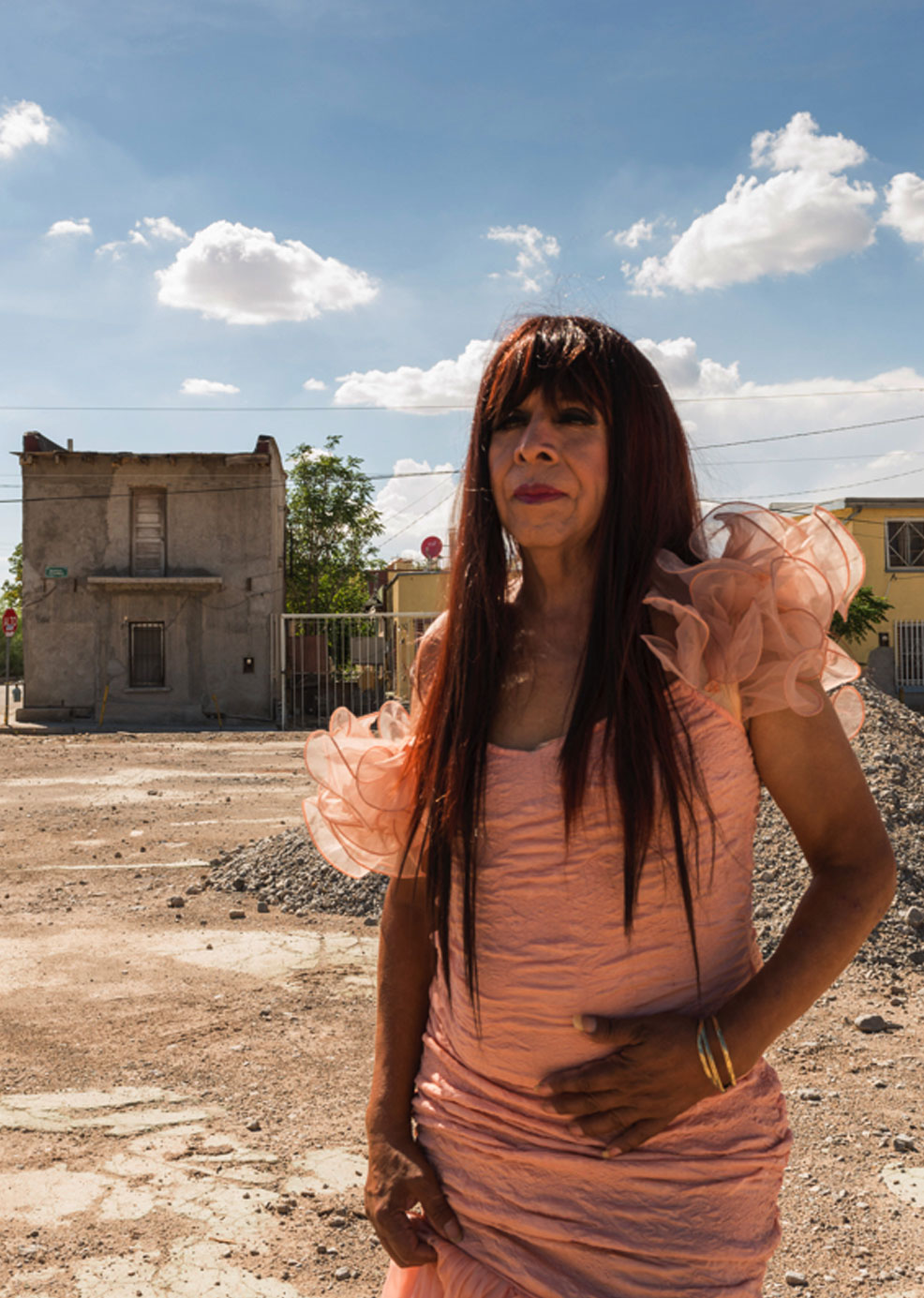
Margolles’s original intention, commissioned by the Manifiesta 11 Biennal, was to invite Karla to Zurich to play poker with Sonia, an Ecuadorian trans woman and sex worker living in that Swiss city. But this murder, which remains unsolved, forced Margolles to rethink the whole project. It was now Sonia who traveled to Ciudad Juárez to meet Karla’s friends, Valeria, Berenice and Vivian, who are also trans sex workers. They talked for three hours about the raw violence they endure and resist every day. As another trans sex worker has bluntly said, "not even tomorrow belongs to us."
This was not an isolated action: Margolles has centered her research on the systematic destruction of Ciudad Juárez through decades of persistent violence. She met Karla in 2010, when she was investigating the disappearance of the city’s nightlife. Karla was once part of the city’s beating heart, performing in variety shows at El Palacio de las Estrellas. When the nightclub temporarily closed, sex work became Karla’s main source of income.[2] Margolles explores these places in which progress perversely and bloodily mixes with pleasure[3] creating islands of impunity, aggravated by the way in which the media and the government respond to this violence. The criminalization of victims has been one of the central strategies used by the government to avoid its responsibility to ensure that justice is done. Time after time, civil society has denounced the fact that the state actively ignores hate crimes committed against certain communities.[4]
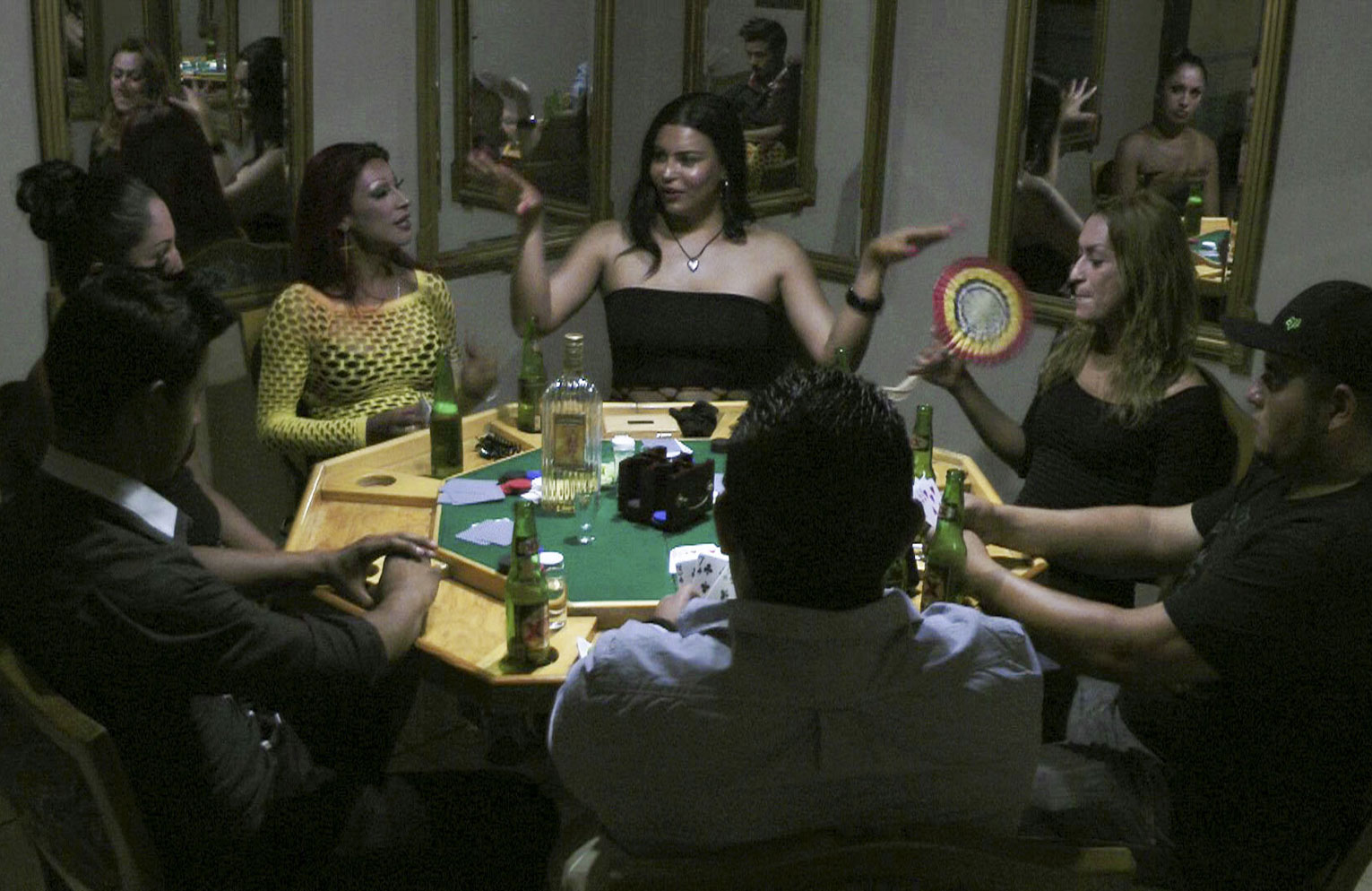
According to the Inter-American Commission on Human Rights, the average life expectancy of a trans person is 35 years. Mexico has the second highest number of hate crimes against trans people, many of them committed against sex workers. Given this context, Karla was already a survivor, an older sister whose age (64) gave her a certain leadership role in the community. Yet when she died, her body was returned to her biological family and her chosen family could not say their farewells. By reclaiming Karla’s identity post mortem for her community, Margolles not only resists the definition of her life by the way in which she died,[5] but offers a type of farewell ritual.
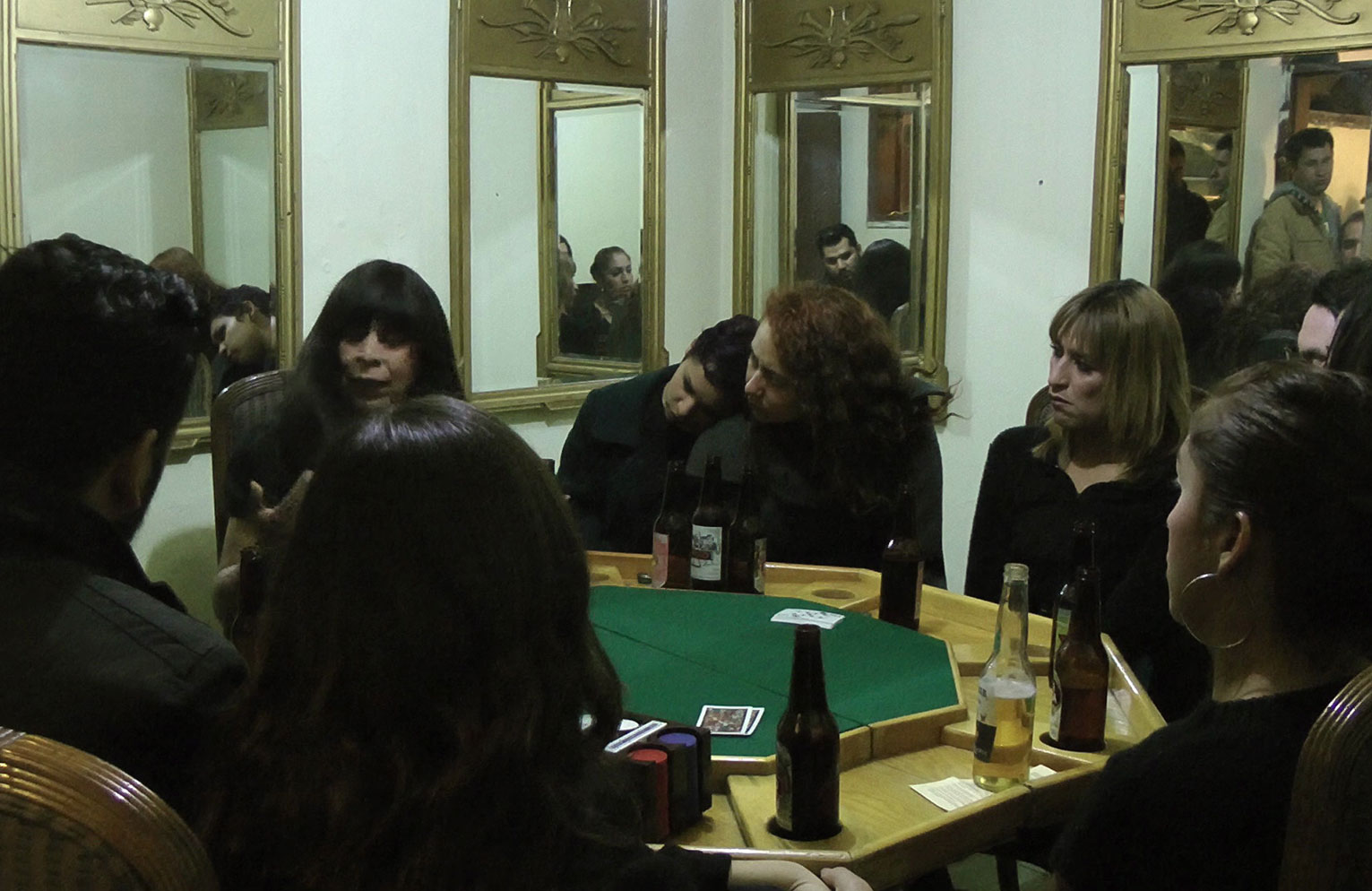
In her exploration of the effects of loss on a community, Margolles has spent years developing aesthetic mechanisms of mourning/protest, which have become increasingly complex. She insists on picking the scab: whether she is in Zurich or any other European city, Margolles creates pieces about violence in Ciudad Juárez. To connect these spaces, which are so different, she situates mourning in bodies that share the same condition of vulnerability: in this case, those of Sonia, Valeria, Berenice and Vivian.
When discussing her work, Margolles has used the image of the morgue wall that separates the family and the cadaver. This wall has the function of filtering without anesthetizing, so that the public can accept the body, the loss, the pain.[6]
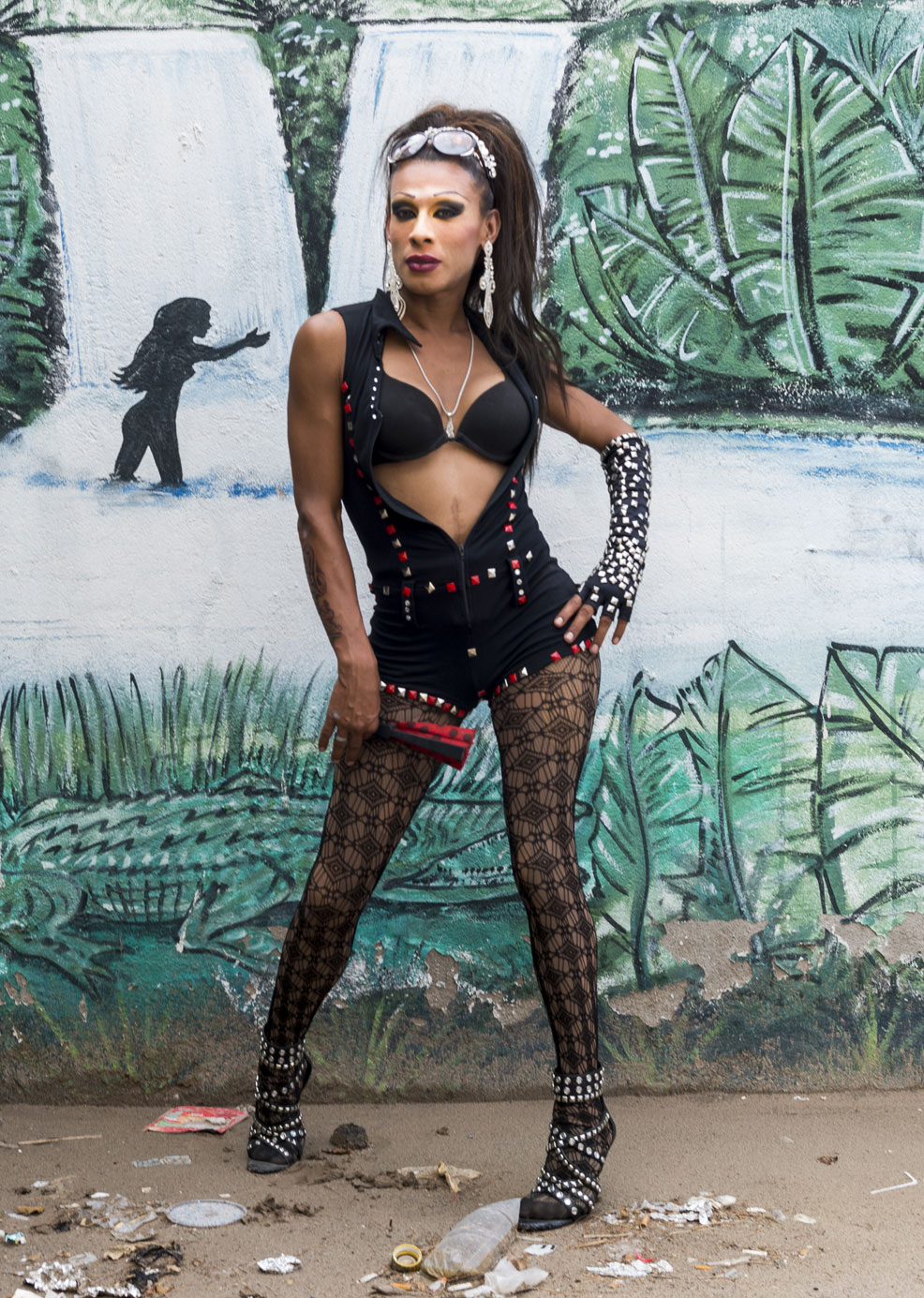
This time, it meant hosting a game of poker in which we can really hear these women. The game of poker is a metaphor: even among those for whom this trade is a choice, their immersion in a predatory environment, surrounded by drug and alcohol abuse, makes each encounter a game of survival. The ability of sex workers to interpret situations and quickly change their behavior is essential in order to avoid violence, not only from their clients, but also from their families, the authorities and even their own colleagues.
In a recent article about graffiti and protests in Ciudad Juárez during the pandemic, Eduardo Barrera inscribed Margolles’s interventions in the genealogy of Temporary Autonomous Zones (a concept developed by Hakim Bey in 1991).[7] In that sense, during those hours, Room 10 of the Hotel Bombín became a safe, autonomous zone for the community of trans sex workers. The walls of this room were covered in mirrors: during the poker game, everyone could see behind them, but Karla, her friends insist, did not have a mirror in front to see what was happening behind.
Alejandra Labastida
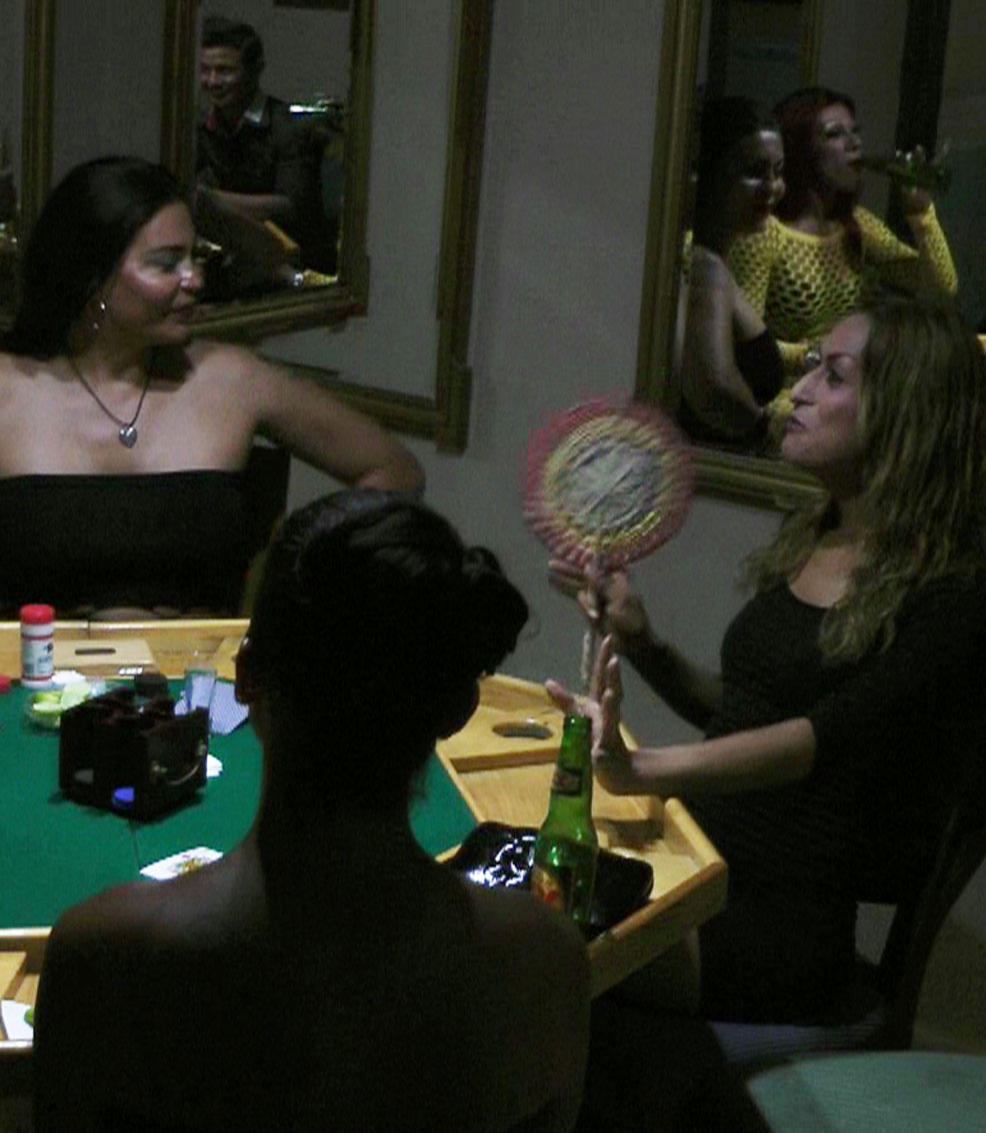
[1] Oscar Gardea Duarte, “A.NIBAL. K.ARLA. A.DAN, This Body is not Mine”, Ya basta hijos de puta. Teresa Margolles, Milán, Silvana Editoriale, 2018, p. 54.
[2] Ibid., p. 50.
[3] Ibid., p. 52.
[4] Vania Pigeonutt, “Una ofrenda contra los crímenes de odio”, Pie de Página, November 3, 2019
[5] Oscar Gardea Duarte,“A.NIBAL. K.ARLA. A.DAN, This Body is not Mine.” op. cit., p. 54.
[6] Interview with Teresa Margolles, visual artist - Terrícoles | betevé
[7] Eduardo Barrera Herrera, “#NoSonLasFormas. El corazón de Juárez en tiempos de pandemia”, La Verdad, June 17, 2020
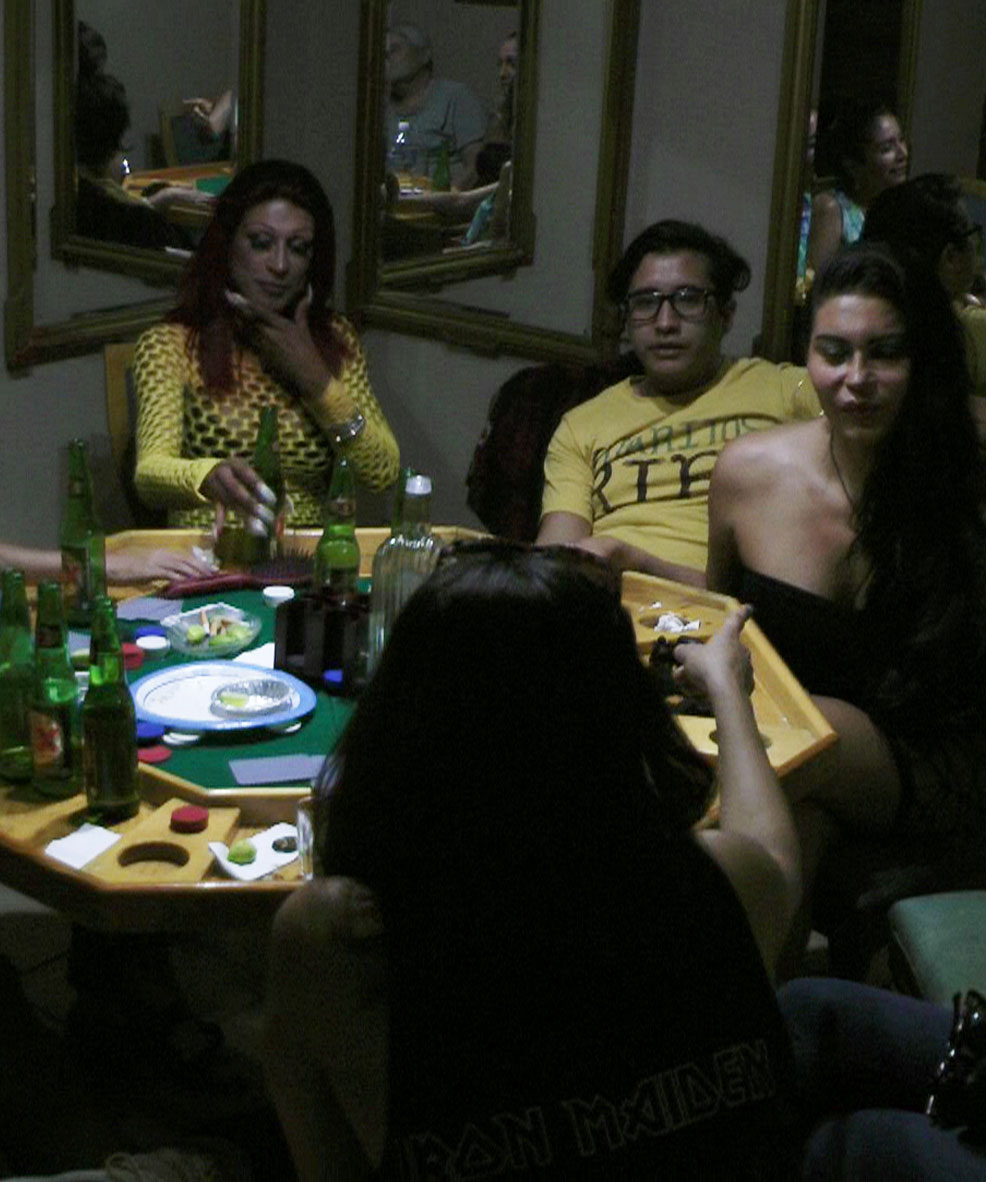
Teresa Margolles, Póker de damas [Ladies’ Poker], 2016
Video, 9’ 33”
Courtesy of the artist
Teresa Margolles
(Culiacán, 1963; Lives and works in Ciudad Juárez and Madrid)
Ever since her early work with the SEMEFO (Forensic Medical Service) collective, Teresa Margolles has made the morgues, the autopsy rooms and, most recently, the violent streets of Mexico into her studio. These are not only places of death, but also sites that bear witness to the social inequality of Mexico’s cities. Margolles works not so much with the remains of bodies, but with memory, the traces of life found in funeral shrouds and the ways in which an act of violence destroys and affects the social fabric on many levels. Victims and survivors alike call attention to the inhumanity of the relationships in our overpopulated cities.


